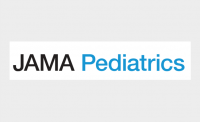The Healthy Start, Happy Start study aimed to help families understand their children’s behaviour by using videos of everyday parenting moments shared between caregivers and their little ones. We wanted to find out if this programme would help families deal with children’s tricky behaviours, and whether it would be feasible to deliver the programme as part of standard NHS services.
To do this, we invited 300 families with 1-2 year olds to take part in the Healthy Start, Happy Start study. Families were put into one of two groups: the programme group, where they were offered the relationship-based video-feedback programme we were interested in, or the monitoring group, where families carried on as normal, without receiving the programme.
We first visited all families at home when the study started. We then went back to see families again 5 months and 2 years after they first joined the study. Following all the families up helped us to see if receiving the programme made a difference to families.
During these home visits, we collected information about children’s behaviour and communication, parenting, family well-being, play, and early school experiences. In the first phase of the Healthy Start, Happy Start study (running from 2015-2019), we found that children whose families received the programme when they were 1- and 2-years-old showed lower levels of behavioural problems two years later when they were aged 3-5.
This short animation summarises our findings from the first phase of the Healthy Start, Happy Start study:

Blog
Read our blog written by Dr Beth Barker and Prof Paul Ramchandani for the Institute of Health Visiting about the Healthy Start, Happy Start findings.

Journal paper
Read our paper published in JAMA Pediatrics about what we found in the first year of the study.
Six Years Later
The second phase of the Healthy Start, Happy Start study looked at whether the benefits we observed after five months and two years were still present much further down the line. Our results show that families who took part in the VIPP-SD programme were still seeing a positive effect, six years later, when the children were around eight years old.
This is the first time that a brief, home-based parenting intervention has been shown to have a sustained effect in this way. One likely reason is that VIPP-SD focuses not just on challenging behaviours, but on positive, responsive and attuned parenting and the parent-child relationship.
Even though families in the programme group were still seeing a positive effect after six years, we noted that the impact had faded from the two-year mark. Because of this, we recommend exploring the value of follow-up interventions – or “booster shots” – particularly for children and families most in need of support, to help maintain progress over time.
This animation summarises our findings from the final stage of the Healthy Start, Happy Start study:

Journal article
Read our paper published in the Journal of Child Psychology and Psychiatry about the latest findings of the Healthy Start, Happy Start study.

Quick-read summary
Read this quick-read summary about the latest findings of the Healthy Start, Happy Study study, published by the Faculty of Education.
This study was funded by the National Institute for Health Research (NIHR) Health Technology Assessment (HTA) programme grant (13/04/33) and the National Institute for Health Research (NIHR) Biomedical Research Centre based at Imperial College Healthcare NHS Trust and Imperial College London. The views expressed are those of the authors and not necessarily those of the NIHR or the Department of Health and Social Care.
We are grateful to the families and teachers who participated in this follow up study for their generosity in contributing over such a long period. Healthy Start, Happy Start families have made a really valuable contribution to one of the most unique studies of early childhood in the UK.
